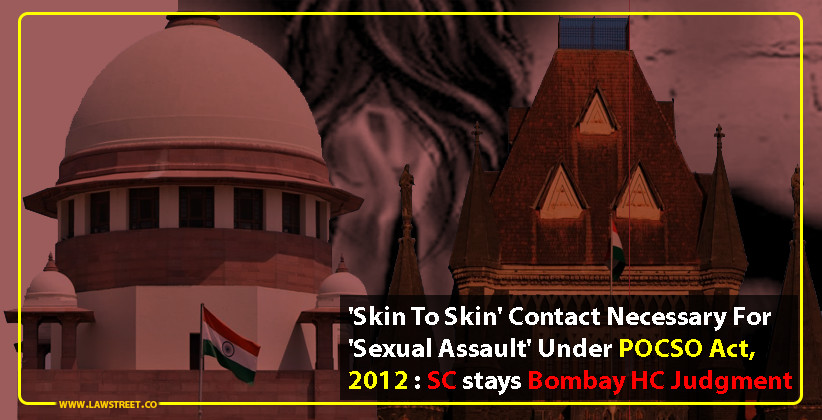The Nagpur bench of Bombay High Court acquitted a man of sexual assault on the grounds that pressing the breasts of a child over her clothes without direct skin to skin physical contact does not constitute sexual assault under the Protection of Children from Sexual Offences (POCSO) Act, 2012. The order was passed by Justice Pushpa V Ganediwala.
The Supreme Court stayed the acquittal of the accused under the Bombay High Court Judgment. The bench was headed by Chief Justice of India, Sharad Arvind Bobde. The CJI acted on the issue when Attorney General, KK Venugopal submitted that the judgment which held that 'skin to skin' contact is necessary for sexual assault under POCSO Act is 'unprecedented' and is 'likely to set a dangerous precedent'.
The acquittal of accused under Section 8 of the POCSO Act, 2012 has thus been stayed and a notice has been issued to him to be returned in 2 weeks. The Attorney General has also been directed to file proper petition challenging the judgment.
The 39 year old accused was held guilty of sexual assault for groping a 12- year- old- girl and removing her salwar by sessions court. The Bombay High Court held that such an act would amount to 'molestation' under Section 354 of IPC and not Sexual assault.
The act of pressing of breast of the child aged 12 years, in the absence of any specific detail as to whether the top was removed or whether he inserted his hand inside top and pressed her breast, would not fall in the definition of sexual assault, Justice Ganediwala said.
National Commission for Protection of Child Rights (NCPCR) chief in his letter underlined that it seems that the identity of the victim has been disclosed, asking asked the Maharashtra Government to file an "urgent appeal" against the judgment
The National Commission for Women (NCW) had also announced that it will challenge the impugned judgment, stating:
The same will not only have cascading effect on various provisions involving safety and security of women in general but also put all the women under ridicule and has trivialized the legal provisions provided by the legislature for the safety and security of women.
Along with this The Youth Bar Association of India and three women have also moved the SC challenging this judgment.








